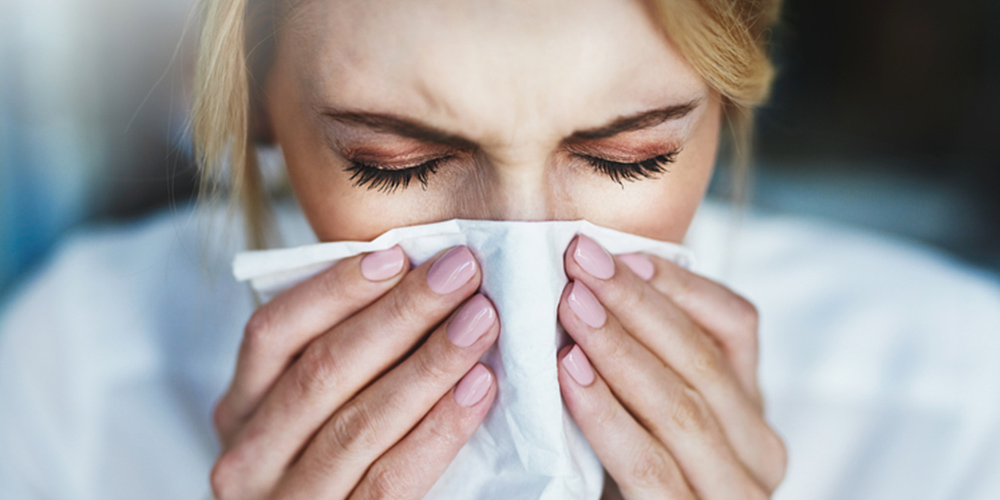Why do we continue to go to work when we’re sick?
Let’s be honest, even though as a country we’re quite proud of our ‘she’ll be right’ attitude, it also can see us heading into work with all of our highly contagious bugs and highly distracting coughs.
After all, our culture has groomed us into believing that’s what all noble employees ought to do. But much like our other habits, soldiering on isn’t always the right thing to do. If there’s one thing worse than being sick, it’s working next to a sick person.
When should you take the day off and when should you solider on? FQ investigates the dos and don’ts of taking sick leave.
Reasons why we go to work when we’re sick – do you relate to these?
- Our workload forbids us from taking the day off. Sometimes we just have too much on, it’s not worth the hassle right? Besides, there’s that meeting in your calendar that you have to attend…
- Your boss might be unreasonable. You feel that your boss would think less of you if you take a sick day and/or your boss makes you feel guilty when you do, responding with “okay, fine” as opposed to a friendly “get better soon”.
- You’re too proud. You feel a warped – yet common – sense of pride when you’re seen to be soldiering on. Going into work sick and being told to go home makes it easier to negate the sickness guilt.
- Financial implications. This is especially true for freelancers or contractors who simply can’t afford to go unpaid by spending time out of the office.
- To prove you’re actually sick. By going in to work everyone can see that you’re actually sick and not faking it.
The do’s and don’ts of sick leave
So if what’s preventing you from taking sick leave rests in one of the above statements, or something very similar, we can safely assume that you’ve decided to a) consider taking a sick day or b) contemplating soldiering on anyway. Either way, best practice would be to resume the dos and don’ts of sick leave to help guide your decision…
Don’t
- Don’t be an office illness martyr. According to Dr Gail Kinman, professor of occupational health psychology at the University of Bedford, the added stress of working while sick is counterproductive. “When you’re ill you’re much more likely make errors and your performance will suffer. By taking time to look after yourself you’ll be able to tune in to your needs much more effectively,” she says.
- Don’t go in to work if you’re having… coughing spasms or a raging fever. If you have diarrhoea or vomiting you shouldn’t come into work for 24 hours as even minor symptoms can develop quickly.
- Don’t risk spreading your illness in the office. “The most common way for illnesses to spread is through bodily fluids. The droplets from a sneeze can travel as far as the length of a bus, so it’s important to minimise contact,” says Dr Helen Stoke-Lampard, GP and chair of the Royal College of General Practitioners.
- Don’t multi-task. When returning to work, avoid multi-tasking. Dedicate an allotted time to process your emails, then all of your phone calls. Productivity coach Hayley Watts from Think Productive suggests to “be brave and work offline at times. It’s much better to deal with a backlog of emails than to be constantly distracted.”
- Don’t half-work from home. When you’re ill, you need to set boundaries and stick to them to allow your body to actually recover. For example, set half an hour aside each evening to go through your emails and then completely switch off after that.
- Don’t get stressed about taking time off. Taking sick days “allows us to re-engage with ourselves and see our wider life outside of work. You can then go back [to work] with perspective and be better equipped to deal with your workload,” explains Dr Kinman.
- Don’t pull a “sickie”. You’re breeding the stigma and culture that is diminishing our rights to sick leave.
Do
- Do take sick days if you’re unwell. The work you will produce by ‘soldiering on’ will be counterproductive to your recovery, more subject to errors and will increase the likelihood of your colleagues getting sick also. “When you’re working, you’re in a constant state of physical and mental stimulation and it takes a while for our bodies to recover,” says Dr Kinman. “When we’re sick, a total digital detox is helpful to reduce anxiety and allow ourselves to recover fully.”
- Do rest. Make sure that when you’re off, you completely switch off and leave your work responsibilities in the office. “Rest is one of the most crucial parts of recovering from illness, so being in at work can delay the process. You need your body to heal,” explains Dr Stokes-Lampard.
- Do find quiet time when you return to work. Even if work is in chaos, remove yourself from any disturbances so you can focus on what’s urgent.
- Do find yourself an ally. Look to your colleague or manager to bring you up to speed on whether there have been any changes to what you’re working on, particularly things that will adjust your priorities for the next day or two.











